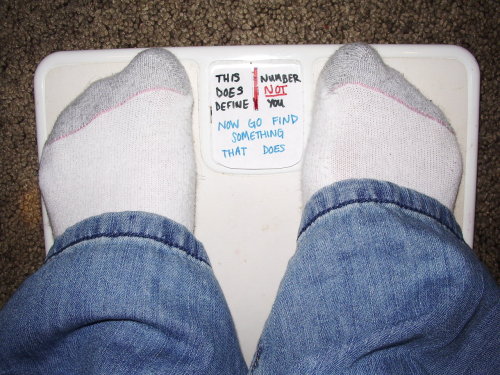
March Madness is upon us. The drama, the rivalries, the brackets, the sheer passion of college basketball (which, if you ask me, is much more fun to watch than pro basketball for this very reason). And yet, at risk of pointing out the obvious, the brackets we fill out with such enthusiasm on
ESPN.com are for men's basketball. The majority of the publicized and televised games? Men's basketball.
The other night I went home for a UConn women's game - though the team is undefeated and has a hugely loyal fan base, they haven't been selling out, which I'll chalk up to the economy. In any case, I was riveted. I'm no sports expert, but these women were spectacular to watch - the way they interacted both on and off the court, the intensity of play, their speed and ball-handling skills - beautiful. Equally impressively, everyone on the team performs well academically - sophomore Maya Moore (pictured), arguably the best player in the league, boasts a 3.74 GPA. Based on the team camaraderie - one player is designated to high-five everyone on the bench whenever someone scores - they seem like people I'd like to hang out with in my spare time. Suffice it to say: I'm in love with the UConn women.
So after the game, with all that adrenaline going through me, I couldn't stop thinking about the fact that the NCAA basketball tournament is essentially the only time when women's sports are given a significant amount of attention in the mainstream media - and even then, there isn't nearly the same degree of excitement about them as there is about the men's tournament. What's up with that? I'm sick of hearing comments like, "Well, men's basketball is just better and more exciting than women's." That seems like a cop-out to me. For one thing, "better" is purely subjective. If women's games and brackets were hyped up as much as the men's, would we find them equally exciting? Probably. Women's basketball definitely brings the passion and the drama - the
UConn/
Tennessee rivalry is one of the fiercest rivalries in sports. And even as a UConn fan, I can easily admit that Tennessee coach Pat Summitt's
1,000 victories is an unparalleled feat - by any coach, male or female. The Lady Vols' athletic director was quoted as saying, "I can’t imagine anyone doing what she has done ever again." Programs like these, with a relatively long history and a strong alumni network, draw crowds. This is the same reason why men's tournament games are played on a neutral court, while women's games are played at stadiums (like UConn's) where there will surely be a wide enough local fan base to sell tickets.
And then there's another problem: where do they go from here? The
WNBA has had a decent amount of success compared to other professional women's sports. But with the Houston Comets - "the most important franchise in the history of women's professional sports" - having
folded this winter, one wonders about the future of the league's popularity and subsequent success. Do players like Candace Parker and Maya Moore (who can totally dunk, by the way) get frustrated by the fact that their sport's popularity peaks in college?
Bringing it back home, how do you feel about women's
sports at Brown? I'd love to hear from athletes on this one. Speaking personally, I hear a lot about how undeniably awesome the women's crew and rugby teams are - but at Brown, as at most schools, nothing in women's sports is even comparable to the amount of money and hype spent on men's football. I know that, "objectively" speaking, this all has to do with money. It's a tried-and-true fact that men's games sell tickets. Fine, I understand that. But is there anything we can do about it? Other than resorting to, say, something like
this? Most relevantly, do we have a feminist obligation to support women's athletics?





